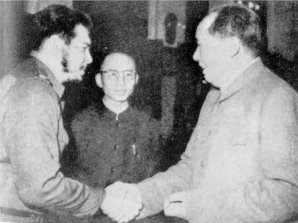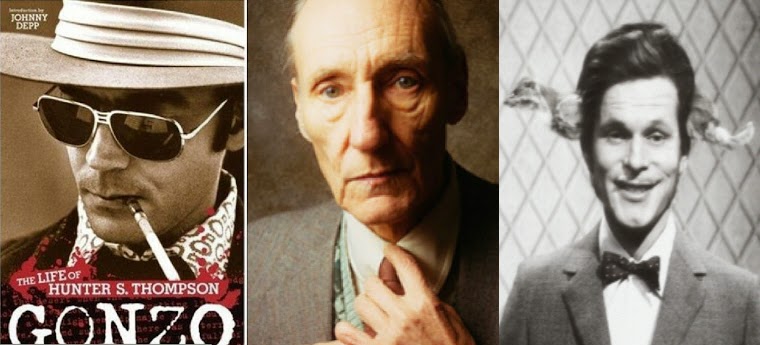“Back in Cuba, as Minister for Industry he signed (February 1960) a trade pact with the USSR which freed the Cuban sugar industry from dependence on the teeth of the US market; in it is the foreshadowing of his failure in the Congo and Bolivia, in an axiom which proved to be hopelessly misleading: ' It is not always necessary towait until the conditions for revolution exist, the instructional focus can create them.' And, with Mao Tse-tung, he believed that the countryside must bring the revolution to the town in predominately peasant countries. Also at thist me, he glorified his own kind of communist philosophy. ( published later in the Socialism and Man in Cuba, March 12 March 1965). It can be summed up in him ' Man really attains the state of complete humanity when he produces, without being forced by physical need to sell himself as a commodity.' He was moving away from "Moscow", towards Mao, and beyond into what is essentially the old idealistic, Anarchism. His formal breach with the Soviet Communist Party came when, addressing the Organization for Afro-Asian Solidarity at Algiers(February 1965) he charged the USSR with being a 'tacit accomplice of imperialism' by not trading exclusively with the Communist bloc and by not giving underdeveloped socialist countries aid without any thought of return. He also attacked the Soviet government for its policy of coexistence; and for revisionism. He initiated the Tricontiental Conference to realize a program of revolutionary, insurrectionary, guerrilla cooperation in Africa, Asia and South America. On the other hand, after a halfhearted attempt to come to some kind of terms with the USA, he was also attacking the North Americas, at the UN as Cuba's representative there, for their greedy and merciless imperialist activity in Latin America.”
He once met with Mao who endorsed his revolution, but gave no material aid. He had hoped Che would abandon his foco strategy (see Revolutionary Worker #927, October 12, 1997),

Che Guevara with Mao Tse-Tung, Peking, 1965.

No comments:
Post a Comment